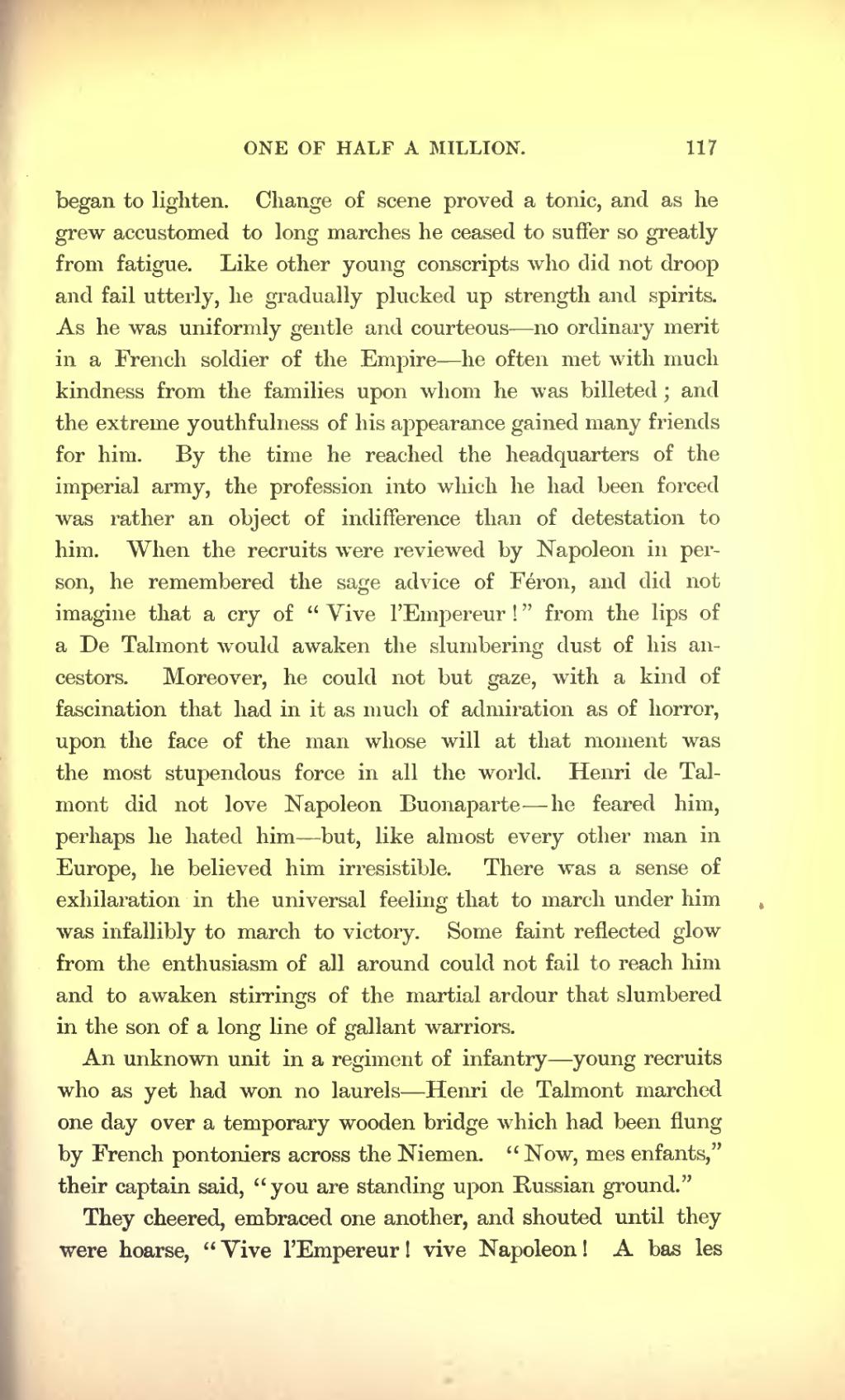began to lighten. Change of scene proved a tonic, and as he grew accustomed to long marches he ceased to suffer so greatly from fatigue. Like other young conscripts who did not droop and fail utterly, he gradually plucked up strength and spirits. As he was uniformly gentle and courteous—no ordinary merit in a French soldier of the Empire—he often met with much kindness from the families upon whom he was billeted; and the extreme youthfulness of his appearance gained many friends for him. By the time he reached the headquarters of the imperial army, the profession into which he had been forced was rather an object of indifference than of detestation to him. When the recruits were reviewed by Napoleon in person, he remembered the sage advice of Féron, and did not imagine that a cry of "Vive l'Empereur!" from the lips of a De Talmont would awaken the slumbering dust of his ancestors. Moreover, he could not but gaze, with a kind of fascination that had in it as much of admiration as of horror, upon the face of the man whose will at that moment was the most stupendous force in all the world. Henri de Talmont did not love Napoleon Buonaparte—he feared him, perhaps he hated him—but, like almost every other man in Europe, he believed him irresistible. There was a sense of exhilaration in the universal feeling that to march under him was infallibly to march to victory. Some faint reflected glow from the enthusiasm of all around could not fail to reach him and to awaken stirrings of the martial ardour that slumbered in the son of a long line of gallant warriors.
An unknown unit in a regiment of infantry—young recruits who as yet had won no laurels—Henri de Talmont marched one day over a temporary wooden bridge which had been flung by French pontoniers across the Niemen. "Now, mes enfants," their captain said, "you are standing upon Russian ground."
They cheered, embraced one another, and shouted until they were hoarse, "Vive l'Empereur! vive Napoleon! A bas les
